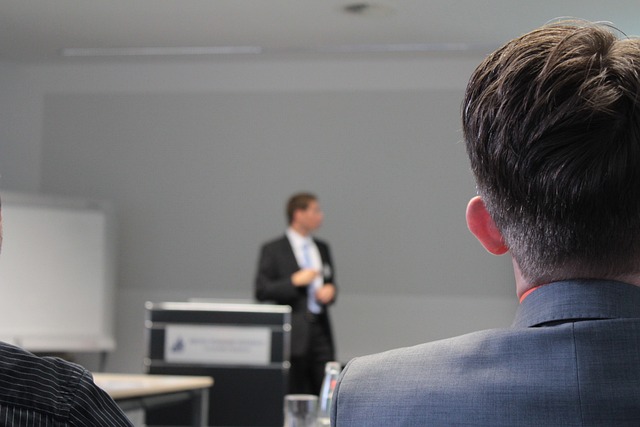For successful Event Planning for Local Businesses, choose social media platforms that match your event's nature and target audience (e.g., Instagram Live for product launches, Facebook Events for formal meetings). Utilize platform-specific features like geotagging or robust commenting to boost engagement. Tailor marketing strategies based on audience demographics and habits, leveraging analytics tools and feedback to keep events relevant. Cross-platform hosting allows businesses to maximize reach, with Instagram for artistic events, LinkedIn for industry networking, and Twitter for real-time updates, catering to diverse interests and enhancing event impact.
In today’s digital era, social media events offer local businesses an effective way to connect with their audience. This article guides you through the art of skillfully managing these events, from choosing the right platform that aligns with your target audience’s preferences on Facebook, Instagram, Twitter, or LinkedIn, to creating captivating strategies and ensuring seamless logistics. Discover how interactive elements, engaging content, and real-time engagement can transform your local business event into a memorable experience.
- Choosing the Right Platform for Your Event
- – Understanding target audience and their social media preferences
- – Benefits of hosting events on various platforms (Facebook, Instagram, Twitter, LinkedIn)
Choosing the Right Platform for Your Event

When planning events for local businesses, selecting the appropriate social media platform is a strategic move that can make or break the success of your online gathering. The choice largely depends on the nature of the event and the target audience. For instance, Instagram Live might be ideal for showcasing a product launch or behind-the-scenes content, while Facebook Events works well for more formal business meetings or workshops. Twitter could be perfect for quick updates, polls, and engaging with attendees in real time.
Considering your event’s objectives, the platform should facilitate your desired engagement. For example, if you’re aiming to drive foot traffic to a physical location, leverage platforms that allow geotagging and check-ins. If interaction is key, choose those with robust commenting and messaging features. The right platform will help create an immersive experience for local business owners and their customers alike, ensuring the event planning process runs smoothly.
– Understanding target audience and their social media preferences

In the realm of event planning for local businesses, understanding the target audience is paramount to success. Event organizers must delve into the specific demographics and social media habits of attendees they aim to attract. What platforms do they prefer? What kind of content resonates with them? Knowing these preferences allows for crafting targeted marketing strategies that extend beyond generic promotions. By aligning event content with the interests and language of the audience, organizers can create a more engaging experience, fostering higher attendance and participation rates.
Social media preferences evolve constantly, so staying agile is crucial. Event planners must stay abreast of trends and adapt their strategies accordingly. Utilizing insights from analytics tools and listening to audience feedback enables continuous refinement of content and engagement tactics. This dynamic approach ensures that events remain relevant, appealing, and successful in the competitive landscape of local business promotions.
– Benefits of hosting events on various platforms (Facebook, Instagram, Twitter, LinkedIn)

Hosting events on multiple social media platforms offers local businesses a powerful way to engage their target audience and boost event planning strategies. Facebook, Instagram, Twitter, and LinkedIn each provide unique opportunities for connection and promotion. For instance, visually captivating content like photos and videos thrive on Instagram, making it ideal for showcasing events with an artistic or lifestyle focus. In contrast, LinkedIn is the go-to platform for industry-specific events, professional networking, and B2B collaborations, allowing businesses to connect with like-minded professionals.
Twitter, known for real-time conversations, facilitates event promotion and updates during the occasion, fostering a sense of community and immediacy. Additionally, these platforms enable local businesses to reach diverse audiences by targeting specific demographics, interests, or job roles, making event planning more effective. By strategically utilizing each platform’s unique features, businesses can maximize their events’ impact, attract larger crowds, and create memorable experiences for participants.
Social media events managed effectively can significantly enhance engagement for local businesses. By understanding your target audience’s preferences and leveraging the unique benefits of each platform, you can create dynamic and interactive experiences. Whether on Facebook, Instagram, Twitter, or LinkedIn, these strategies ensure your events captivate participants and foster meaningful connections. For event planning professionals and local business owners alike, integrating social media into event strategies is no longer an option but a necessity.
